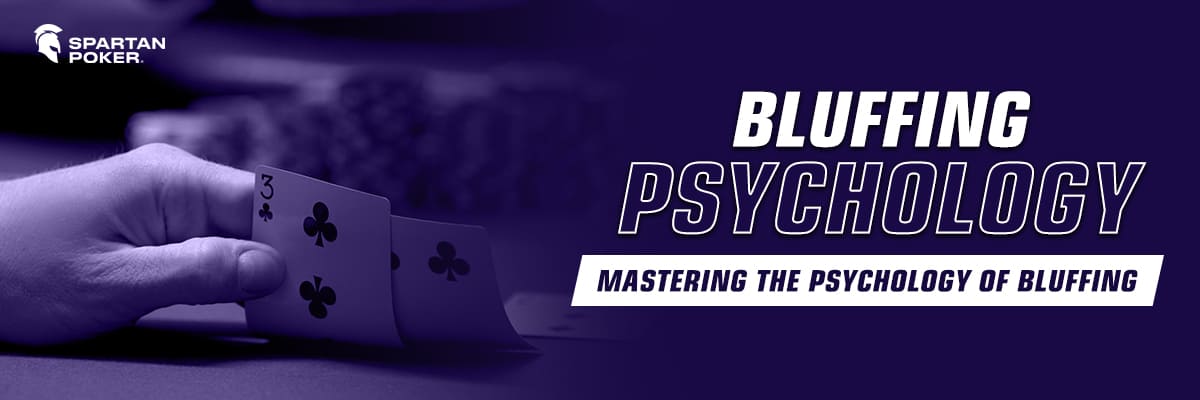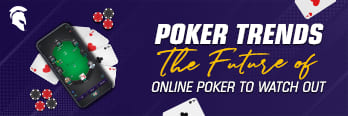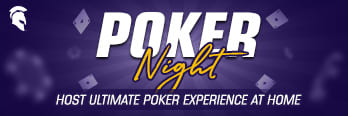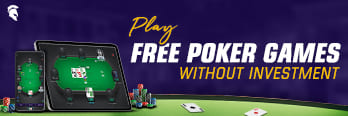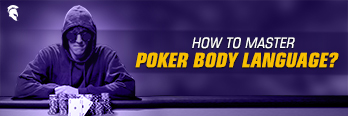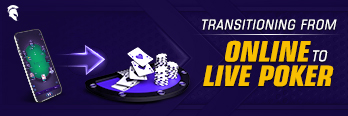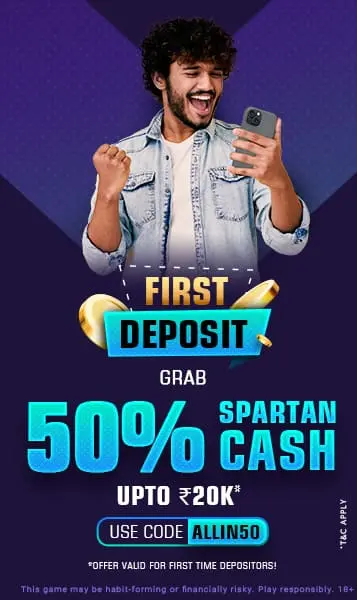Picture yourself in a dimly lit room, smoke swirling around the poker table, and a sly grin spreading across your face. You hold an okay-ish hand, but that won't stop you from pulling off the ultimate poker trick - the bluff!
Welcome to the intriguing world of poker, where deception is an art form, and the key to unlocking victory lies in your ability to outwit your opponents.
Bluffing is the secret weapon that adds spice to every poker game, turning it into a thrilling rollercoaster of mind games, strategy, and psychological warfare. At its core, a bluff is a mischievous dance of pretending to have a stronger or weaker hand than you truly hold.
It's like playing poker with a poker face and invisible cards, keeping your rivals guessing and second-guessing their every move.
But beware; the art of bluffing is not for the faint-hearted. It requires nerves of steel, impeccable timing, and a dash of flair to pull off the perfect con.
Successful bluffing can turn the tables, snatching victory from the jaws of defeat and leaving your opponents wondering what hit them. Let's roll the dice and delve into the captivating world of bluffing in poker.
Are you up for the Bluffing challenge? Let's find out!
Experience counts!
Experience in poker can significantly influence a player's bluffing abilities. Seasoned players tend to bluff more effectively because they have accumulated knowledge about their opponents' tendencies, betting patterns, and decision-making styles.
They are better equipped to recognize optimal bluffing opportunities and can execute bluffs with greater precision.
On the other hand, novices might struggle with bluffing, as their lack of experience may lead to unnecessary and poorly timed bluffs. Inexperienced players often find it challenging to read their opponents accurately, making their bluffs more transparent and easily exploitable.
Bluffing Tactics
Several tactics can be employed during a poker game to enhance bluffing effectiveness:
Selective Bluffing:
Rather than bluffing randomly, it's vital to choose specific situations and opponents for bluffing. Bluff when there's a reasonable chance your opponents might fold, and avoid bluffing against extremely tight or inexperienced players who are likely to call regardless of their hand strength.
The Semi-Bluff:
This tactic involves betting aggressively with a drawing hand, which has the potential to improve into a strong hand later in the game. A semi-bluff can be powerful as it combines the chance of winning the pot immediately and the opportunity to improve your hand on subsequent betting rounds.
Image Manipulation:
Players can leverage their established table image to execute effective bluffs. If a player is perceived as conservative and only bets with strong hands, opponents are more likely to fold when they bluff, assuming they must have a premium hand.
Time-Based Bluffing:
The timing of a bluff can be crucial. A well-timed bluff when a scary card hits the board or when opponents seem uncertain can yield better results.
Body Language and Bluffing
Non-verbal cues are communication signals that are conveyed without using spoken or written words. These cues can include facial expressions, body language, gestures, postures, eye contact, and tone of voice. Non-verbal cues play a significant role in communication, often complementing or even contradicting the verbal message being conveyed.
Understanding non-verbal cues is essential for effective communication and can be particularly important in social interactions, interviews, negotiations, and, as previously discussed, in the context of poker when trying to read opponents and bluff effectively.
Body language plays a significant role in the game of poker, especially when it comes to bluffing. Understanding and interpreting the non-verbal cues of opponents can provide valuable insights into the strength of their hands and whether they are bluffing. As a bluffer, it's essential to be mindful of your own body language to avoid giving away any unintended signals.
Here's an in-depth look at how body language and bluffing are intertwined:
Nervousness Indicators:
Bluffing is often associated with anxiety and nervousness because you are trying to deceive your opponents. Certain body language cues can give away these emotions, such as trembling hands, fidgeting, or shifting weight from one foot to another. Experienced players may pick up on these signs and interpret them as signs of a possible bluff.
Eye Contact:
Eye contact, or the lack thereof, is a critical aspect of body language during a poker game. Players who are bluffing may avoid direct eye contact, as they may feel guilty or anxious about their deceitful actions. On the other hand, some players might try to stare down their opponents to give the impression of strength.
Understanding how your opponents behave concerning eye contact can help you assess their level of confidence in their hands.
Fake Smiles and Forced Expressions:
When bluffing, some players may try to smile to appear relaxed and confident. However, a fake smile may come across as unnatural or forced. Similarly, other facial expressions like narrowed eyes or rapid changes in expression can be giveaways of a bluff. Reading these facial cues can help you make more informed decisions during the game.
Bet Sizing:
The way a player places their bets can also be a form of body language. For instance, suddenly making a large bet after being passive throughout the hand may indicate an attempt to intimidate opponents and represent a strong hand. Conversely, a small bet in a critical situation might signal a weak hand trying to sneak by without drawing attention.
Also Read - Paisa Kamane Wala Game
Timing of Bets and Actions:
The timing of bets and actions can also reveal a lot about a player's intentions. For example, hesitating before betting or checking when it's their turn may suggest uncertainty or a struggle with the decision to bluff. On the other hand, quick and assertive actions can be a way to display strength.
Posture and Position:
A player's posture at the table can convey their level of comfort and confidence. Upright and composed posture may indicate strength, while slouching or closed-off body language might signal weakness or discomfort.
Consistency vs. Inconsistency:
Consistency in body language is essential. Drastic changes in behavior, such as suddenly becoming tense, sweating, or becoming overly animated, can be indications that something is amiss. Conversely, maintaining consistent body language can help you keep your bluffs well disguised.
How to Maintain a Poker Face while playing?
Maintaining a poker face is crucial for successful bluffing. Here are some tips to help you master the art of maintaining a stoic expression:
Practice in Front of a Mirror:
Spend time practicing your poker face in front of a mirror. Observe your facial expressions while imagining different scenarios and hands. Take note of any involuntary reactions, such as raised eyebrows, eye twitching, or mouth movements, and work on controlling them.
Control Your Breathing:
Deep breaths and relaxation techniques can help calm your nerves during a game. Stress and anxiety can lead to visible signs of discomfort on your face, which can reveal the strength or weakness of your hand. Focus on maintaining steady and controlled breathing to stay composed.
Keep a Neutral Expression:
Aim for a neutral facial expression that does not reveal emotions. Avoid showing excitement when you have a strong hand or disappointment when you have a weak hand. Keep your facial muscles relaxed and refrain from making any obvious expressions that could give away information.
Limit Eye Movement:
Avoid excessive eye movement, as it can be a telltale sign of nervousness or uncertainty. Maintain steady eye contact with the other players without staring them down, as intense eye contact can also be perceived as a sign of strength or aggression.
Be Mindful of Your Body Language:
Your body language should match your poker face. Avoid fidgeting, tapping your fingers, or displaying restless behaviours, as they can indicate anxiety or nervousness. Keep your movements deliberate and controlled.
Stay Focused and Patient:
Staying focused on the game and being patient are essential aspects of maintaining a poker face. Keep your attention on the current hand and the behaviour of other players. Avoid unnecessary chit-chat or fidgeting while waiting for your turn.
Avoid Talking Too Much:
Talking too much during a poker game can be a giveaway of nervousness or trying to conceal a weak hand. Limit your conversations to essential game-related interactions and avoid discussing the strength of your hand or your strategy.
Learn From Others:
Observe other skilled poker players and how they maintain their poker faces. Watch poker tournaments or professional players' videos to gain insights into how top players control their emotions and facial expressions.
Manage Your Emotions:
Understand that emotions are a natural part of poker, but managing them is crucial. Winning and losing can evoke strong feelings, but it's vital to maintain a composed demeanour regardless of the outcome. Remember that consistent behaviour over time can help disguise any occasional slips in your poker face.
Bluffing in poker is a captivating dance of deception, strategy, and psychology. Experience, combined with well-executed tactics and a masterful poker face, can turn even the weakest of hands into a formidable force.
Understanding the nuances of bluffing psychology and its interaction with body language can elevate a player's game and create thrilling moments at the poker table.
However, always remember that bluffing is a double-edged sword, and misjudging your opponents or overusing this strategy can lead to dire consequences. Happy bluffing!
